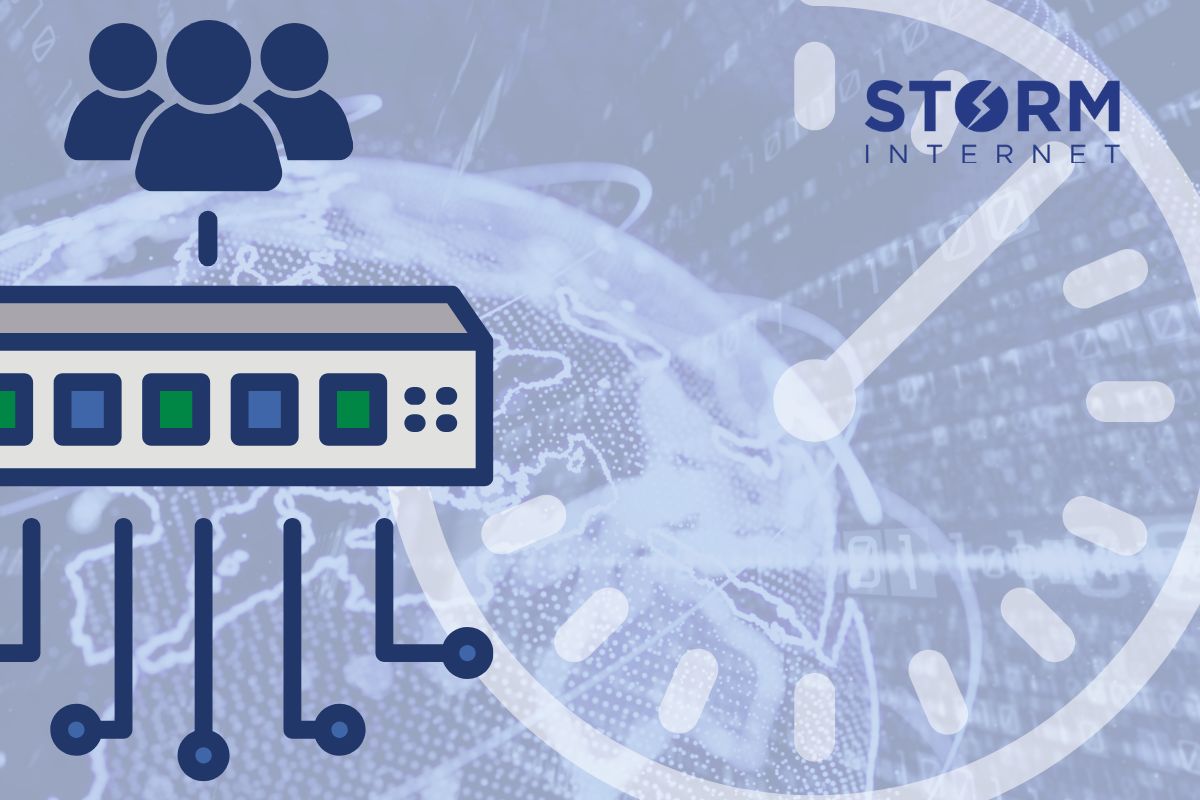Security
Is it a Phishing Email? | Storm Internet

Is it a phishing email or a real email?
Email is now the most commonly used method of communication there is, with 87 per cent of over 18s in the UK owning an email address. It’s also one of the most effective marketing tools used by businesses, not to mention critical for internal communications and exchanging day-to-day information.
But as our technology has grown to be faster, user-friendlier and far more sophisticated, so have email phishing scams, making them trickier to spot and a lot more damaging to the overall welfare of any business or household.
While you may believe that you can see a scam a mile away (and, we agree, some do stick out like a sore thumb), it might interest you to know that a staggering 30 per cent of phishing emails get opened. Their structure, tone, graphics and subject lines are becoming increasingly camouflaged against the backdrop of your regular correspondence, subjecting you to potentially dangerous bugs designed to steal information from your computer (and other computers on your network). In fact, one survey has shown that 85 per cent of organisations experience a phishing attack at some point, with 60 per cent reporting a perceived rise in the number of attacks they had fallen victim to.
So, what exactly are phishing scams and why should you be cautious?
Phishing scams are sent with the objective of obtaining personal or sensitive information about you or your business. The email will ask you to click on a link or download an attachment which, in turn, will corrupt your files and send confidential information to the sender. Sometimes you’ll be taken to a landing page that mimics a familiar website like HSBC or Amazon, where you’ll be prompted to enter log-in details or highly sensitive passwords, essentially handing this data straight to the hacker for their own use.
And the consequences can be devastating. Cast your mind back several years to when Yahoo became prey to an immense cyber-attack, compromising the data of over 500 million users worldwide. This not only destabilised the company and damaged customer trust, but reduced Yahoo’s value upon sale to Verizon by $350 million. And it’s important not to forget the customers too, all of whom were made more vulnerable to further phishing scams and identity theft due to Yahoo’s failure to protect their personal information. In fact, many customers who find their data has been hacked have grounds for compensation under the 1998 Data Protection Act (and very shortly under the GDPR), which, in turn, sets a company back financially even further. While Yahoo is an extreme example, it goes to show how sophisticated some hackers can be, and the importance of anyone with email address to remain vigilant by using an effective and robust web platform and email hosting system such as the one offered by Storm Internet.
So, what are the signs you’ve received a cleverly packaged phishing email?
Here’s a couple of things to look for:
The email domain name looks suspicious.
Hackers tend to rely on you not realising how domain names work – they think that as long as you see a trusted word (e.g. Amazon) in the address somewhere, then it’s safe to open. Usually phishing emails will come from addresses that look like this: [email protected] You can see the word ‘amazon’ at the start of the email, but the domain name itself is unrecognisable.
It asks for sensitive information
In an age of internet banking and online shopping, it’s not uncommon for us to be typing our passwords into websites or even saving them to our phones. But passwords should never be asked for in an email. Furthermore, any email that asks for your banking information, passport number, address, date or birth or NI number is most likely deceptive.
The messaging is ambiguous or has a keen sense of urgency
Phishing scams want you to act fast, so will often talk about time limited offers, urgent scenarios or threatening risks you’ll be subject to if you don’t act right away. For example, you might receive a cleverly disguised banking email stating there’s been an attempt from a third party to hack your online banking account and therefore you must change your passwords immediately. This is a scam. Remember, if there’s ever a genuinely dangerous scenario, your bank are most likely to call you immediately or cancel your card.
Of course, if you’re busy, you don’t have the time to be sat around deciphering which emails are genuine and which might completely buckle your business. And that’s where we come in. At Storm Internet, we successfully manage thousands of servers for hundreds of clients across the UK. Our 24/7 monitoring service ensures that malicious activity can be identified and eliminated before any damage is done. While we know that many email phishing scams can be easy to weed out on your own, a higher degree of sophistication makes this more difficult than ever before. So why risk it? Have peace of mind with one of our fantastic hosting packages and we’ll do all the hard work for you.
Speak with a Storm Expert
Please leave us your details and we'll be in touch shortly
A Trusted Partner








